
English | 中文

The First GoldenBee CSR Academic Seminar held in Beijing
source:goldencsr date:2018-12-18 11:17:13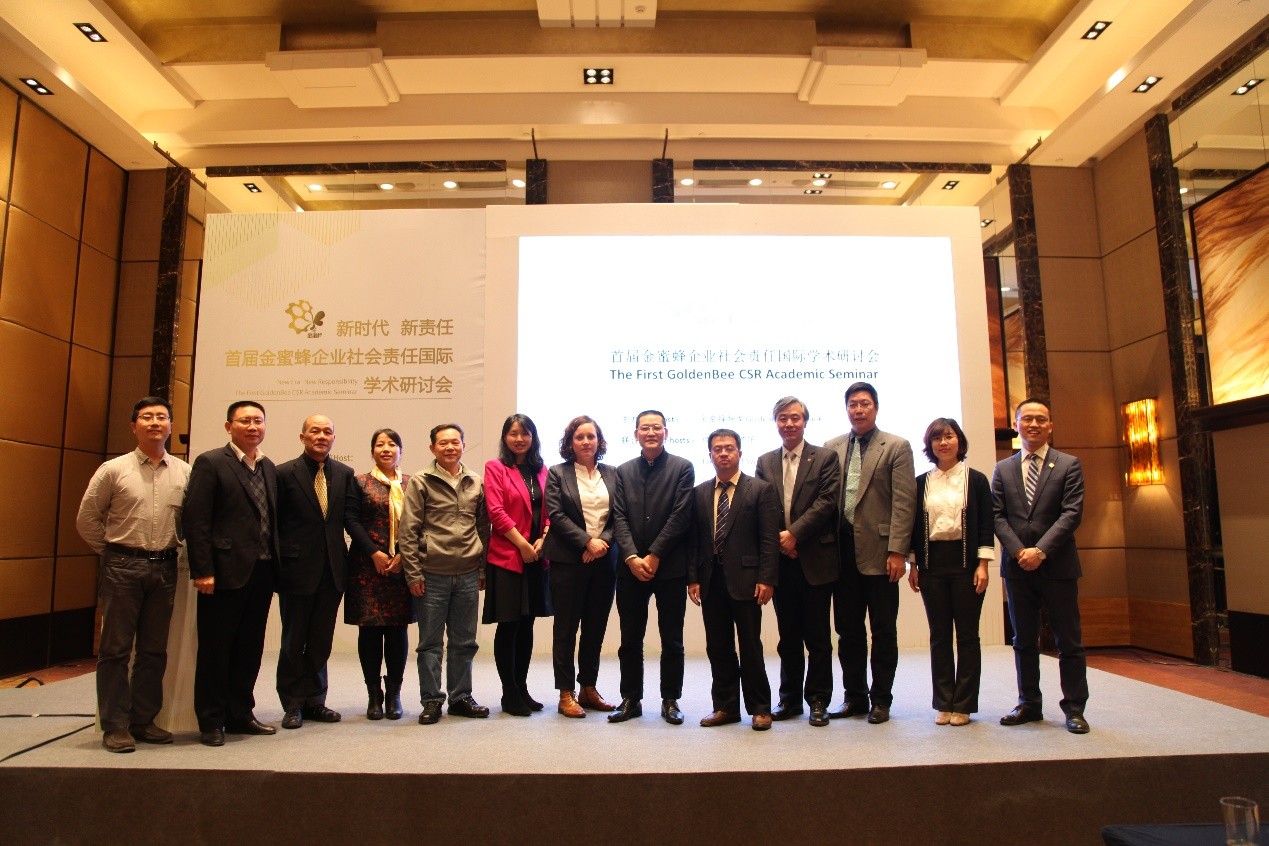
As an important force in the creation of social responsibility theories, pulicity of social responsibility management and spread of social responsibility practices, the academia has made positive and significant contributions to promoting the sustainable and healthy development of CSR in China.
2018 marks the 40th anniversary of China’s Reform and Opening-up, and is also an important year for China to embark on a new journey in the new era.
Currently, two “Hows” are challenging the academic circles, business circles and other sectors of society as their new responsibilities, that is, how to make better use of the power of the academia to transform the latest social responsibility theory into a force that drives the management and sustainable development of enterprises, and how to promote communication between academic circle and enterprises and upgrade the latest CSR practices of enterprises to the level of management theory.
To further discuss and solve the aforementioned problems, GoldenBee Thinktank, in collaboration with Embassy of Sweden in Beijing, HUST-GoldenBee CSR Research Institute, and China General Nuclear Power Corporation (CGN), held the First GoldenBee CSR Academic Seminar themed “New Era, New Responsibility” at Shangri-La Hotel, Beijing on December 5, 2018.
More than 100 participants, including professors, scholars and students from more than 20 well-known universities and research institutes at home and abroad as well as business representatives attended the Seminar.
The Seminar was chaired by Guan Zhusun, Executive Dean of HUST-GoldenBee CSR Research Institute. Lei Hong, Dean of HUST-GoldenBee CSR Research Institute, HUST professor, and Vice Chairman of Chinese Sociological Association, and Lotta Liljelund, Counsellor & Head of CSR Center of the Swedish Embassy in Beijing, delivered the opening remarks.
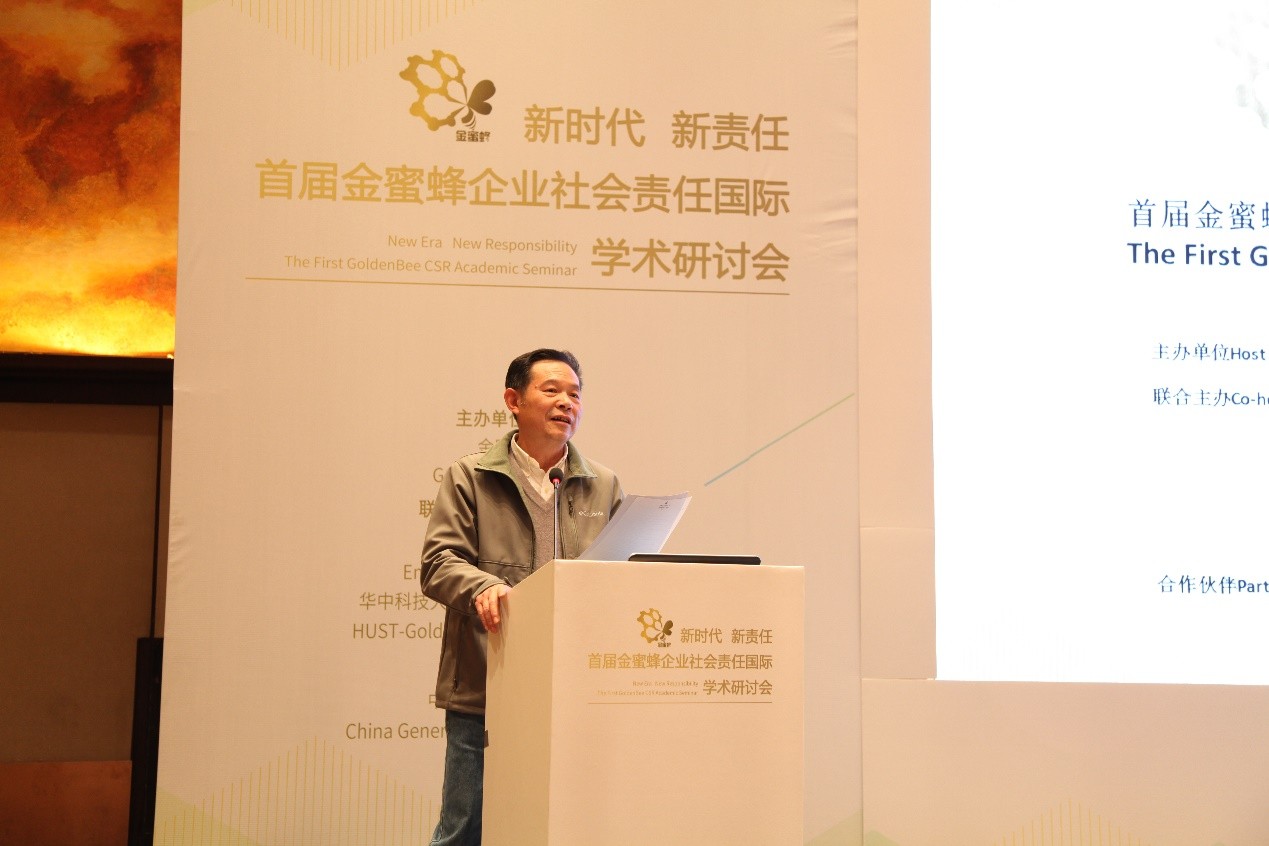
According to Professor Lei Hong, in recent years, research into social responsibility has gradually gained the attention of the government, enterprises, social organizations and academic circles. The cooperation and engagement of industries, academia and research institutes can broaden the horizons and enhance exchanges, thus providing strong impetus for China to promote social responsibility more widely. The Seminar held by GoldenBee Thinktank intended to better integrate social responsibility researches with practices.
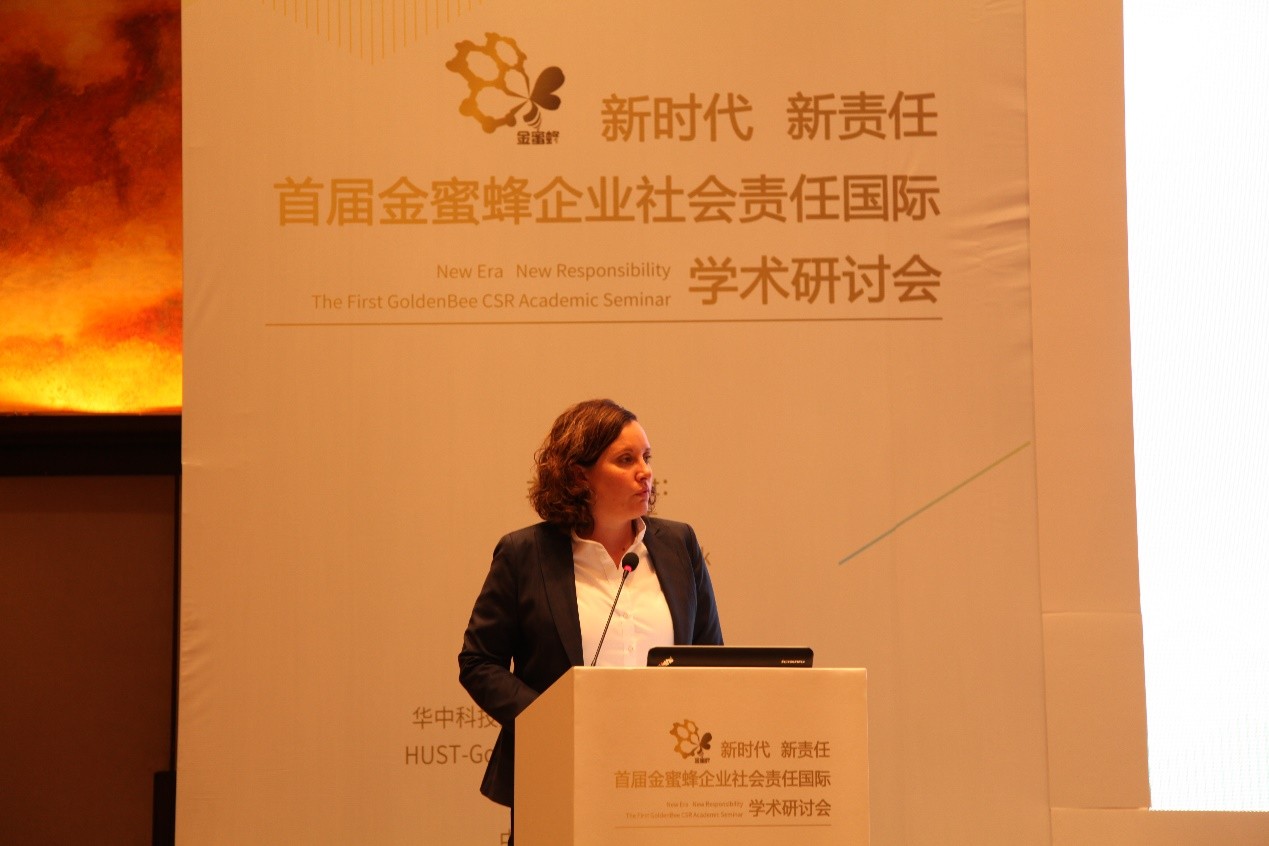
Lotta Liljelund said that the development of social responsibility in Sweden benefited from strong collaboration between industries, academia and research institutes. The two most prestigious business schools in Sweden had integrated sustainability and CSR philosophy into their all courses, and attached importance to communication and cooperation with enterprises. As far as Swedish experience is concerned, the link and dialogue between the academia and business are important for promoting social responsibility and can help foster future business leaders of sustainability.
CSR Centre at the Embassy of Sweden in Beijing has promoted the sustainability and sustainable trade between China and Sweden since 2007, but the two sides have not realized much cooperation in academic circle. The Embassy believed that, deepened exchanges between the academia and enterprises can make the practices of enterprises more sustainable, and it looks forward to further cooperation in this new field.
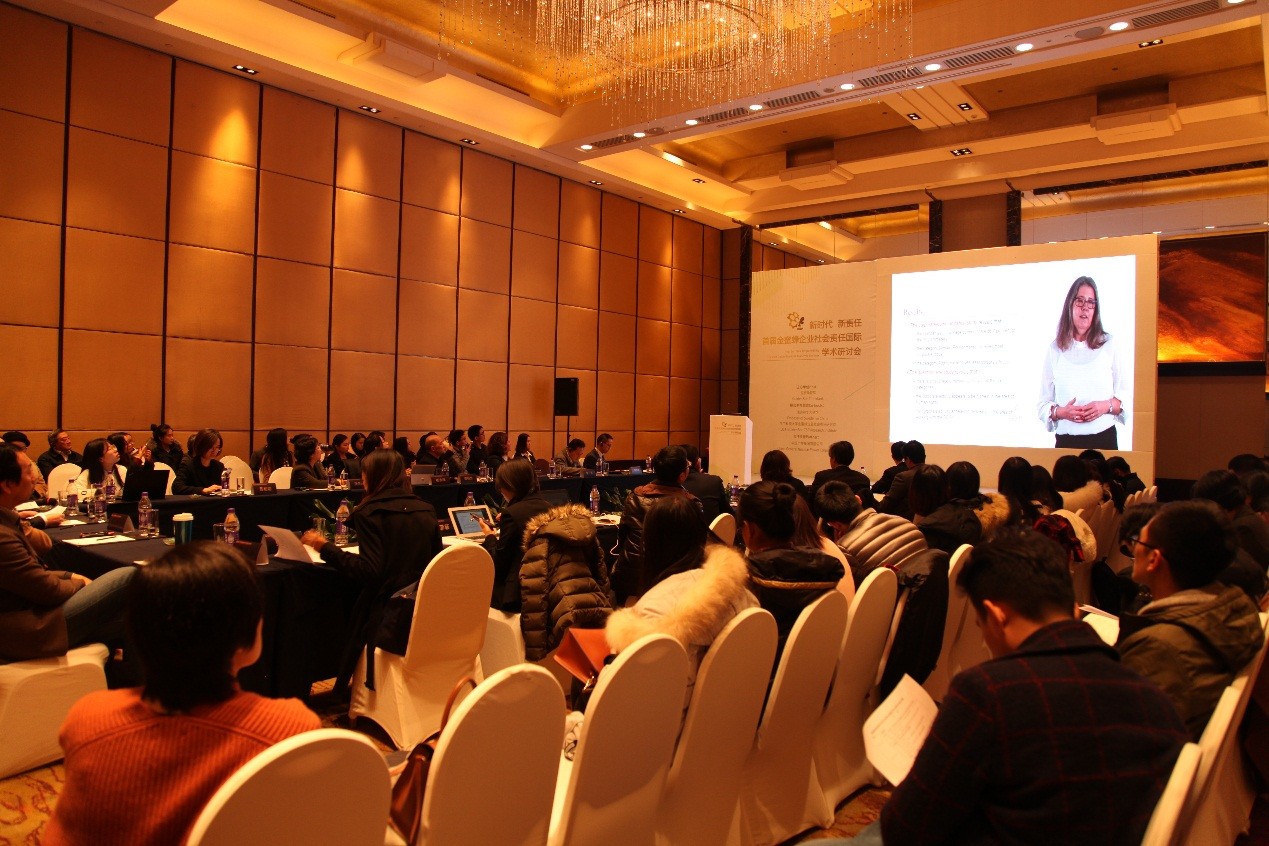
In keynote speeches, scholars at home and abroad discussed new trends in CSR research. Susanne Arvidsson, Associate Professor of School of Economics and Management, Lund University, Sweden, introduced the three challenging trends in sustainability reporting, namely stakeholders’ doubts about CSR reporting, challenges of corporate sustainability governance, and challenges in sustainable risk management. She also introduced a Swedish research into the sustainability ranking of enterprises.
Masao Seki, Professor of the School of Business Administration, Meiji University, Japan, introduced the history and characteristics of CSR development in Japan, as well as the development of CSR research institutions and researches. Japan Forum of Business and Society (JFBS), a social responsibility research institution in Japan, organizes CSR-related events every year to bring together representatives from academic and business circles and relevant organizations to discuss the development of social responsibility in Japan, and publishes white papers on social responsibility. In Japan, Sustainable Development Goals (SDGs) have been integrated into the development goals of most enterprises and business strategies.
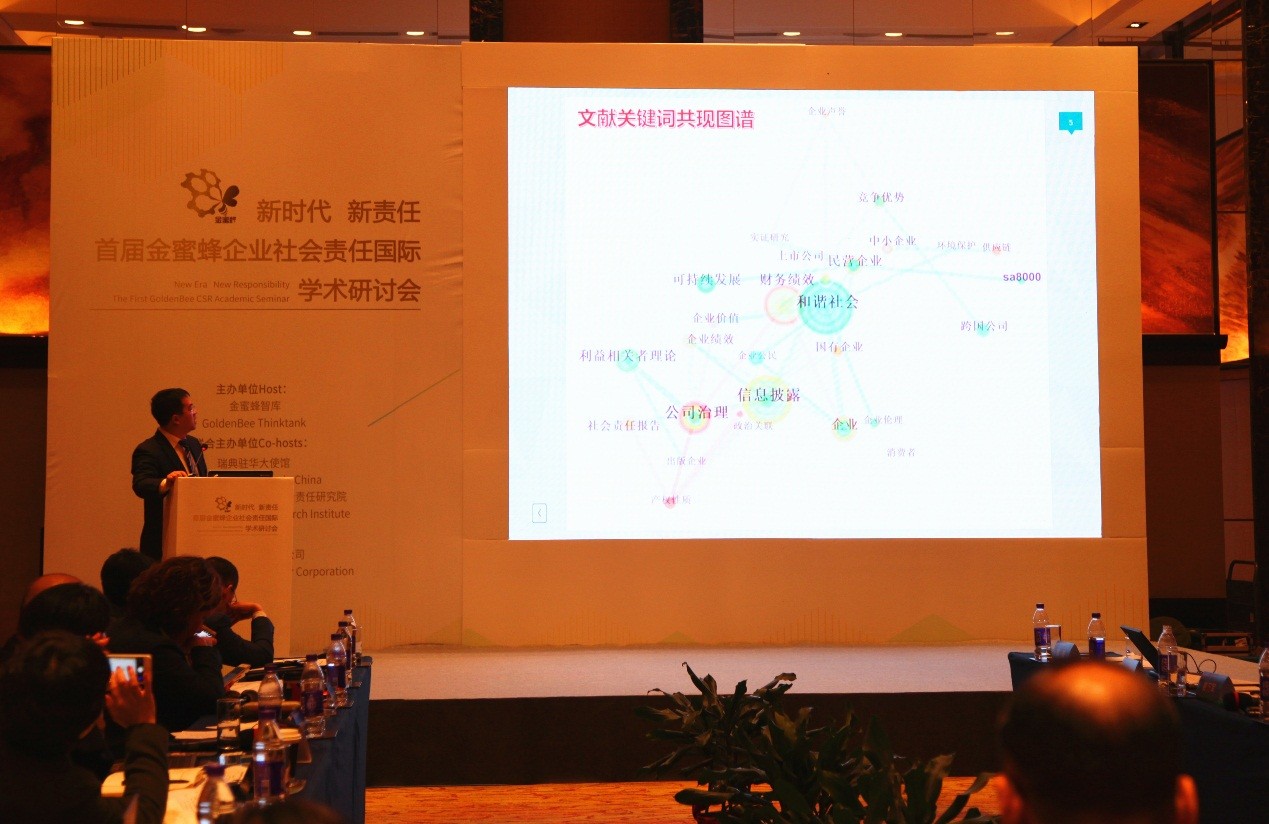
Guo Yi, Professor of the School of Economics, Beijing Technology and Business University (BTBU), by studying literature reviews on CSR in China, analyzed the latest trend of CSR development in China. In his opinion, current research on CSR in China has shifted from extensive research to lean research in regarding to the contents, from meeting external compliance requirement to actively integrating CSR into corporate strategic management, and from focusing on the macro-environment to specific CSR issues.
Afterwards, guest speakers at the Seminar discussed the current development of CSR researches and the practical role and future trends of CSR in the panels of “Sharing of views among scholars”, “Sharing of views among business pioneers” and “Sharing of views among young researchers”.
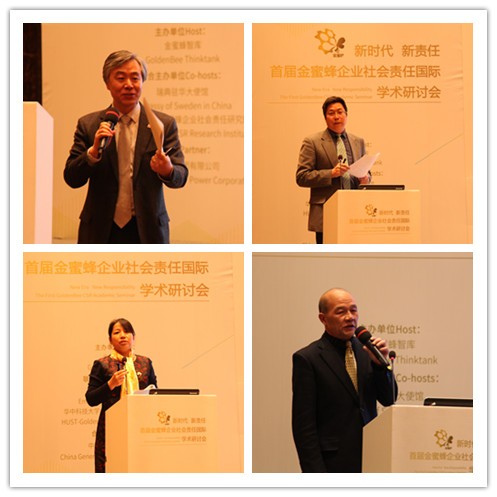
Panel 1: Sharing of views among scholars
In the panel of “Sharing of views among scholars” chaired by Jiang Wanjun, Dean of Guanghua School of Management Xi’an Campus, Peking University, Doctoral Supervisor, Vice Director of Center of Responsibility and Social Value, professors and experts from four well-known universities in China shared their studies and opinions.
Zhou Weizhong, Professor of the Business School, Central University of Finance and Economics discussed whether CSR is the internal demand or passive response. In his view, CSR is fundamentally derived from the internal demand of enterprises.
Cui Yongmei, Deputy Dean of the School of Economics and Management, Beijing Jiaotong University, Professor and Doctoral Supervisor, shared her view on the relationship between corporate M&A, social responsibility and value creation, and she believed that CSR can facilitate corporate M&A and value creation.
Tan Mingfang, Professor of the School of Philosophy, Zhongnan University of Economics and Law and Vice Chairman of Hubei Sociological Association, proposed the concept of the “New Pyramid” of CSR from the sociological perspective, providing a brand-new view for researches into CSR.
Professor Jiang Wanjun talked about the role of colleges and universities in the dissemination of CSR philosophy. He believed that the School of Management is a good platform, and it is of great significance in cultivating CSR talents, and promoting CSR theoretical researches, dissemination and practices.
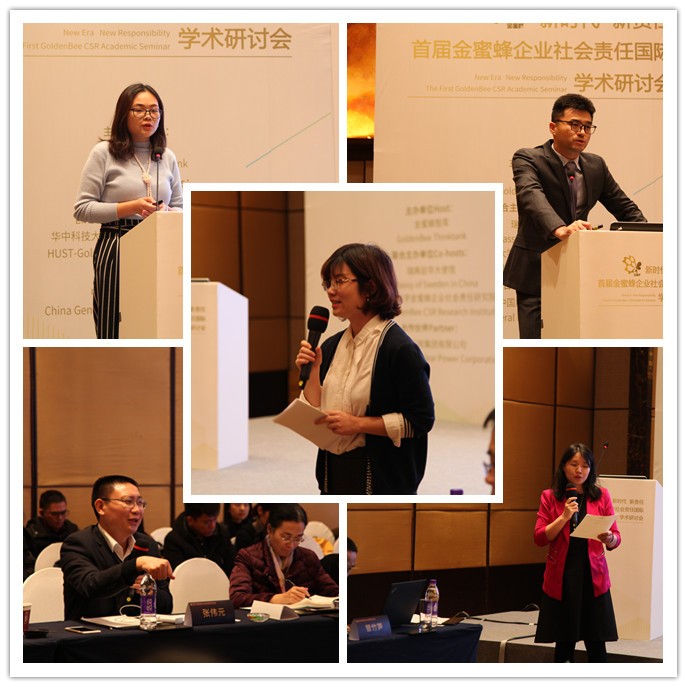
Panel 2: Sharing of views among business pioneers
Academic researches on CSR are carried out to guide the practices of enterprises. The panel of “Sharing of views among business pioneers” was chaired by Zhang Pan, Deputy Director of Research Institution, China Business Executives Academy, Dalian, and representatives from three Chinese central SOEs introduced the CSR practices of their companies.
Gao Peijun, Director of News and Social Responsibility Division, Party-mass Relations Department, China Minmetals Corporation (China Minmetals), shared the CSR development of China Minmetals and the corporate experience over the years from three aspects, namely responsible management, responsible practice, and responsible dissemination.
Zhang Weiyuan, Director of Corporate Culture and Brand Building Division, Publicity and Culture Department, China Southern Power Grid (CSG), talked about the CSR work of CSG based on five aspects including philosophy, management, practice, communication and research.
Chen Boyu, Senior Brand Manager of Cultural Publicity Center, CGN, introduced the integration of CSR into CGN’s business by from five aspects, namely nuclear safety, clean energy, overseas expansion, technological innovation, community development and communication.
At the end of the panel, Li Li, Associate Research Fellow of Institute of International Economy, University of International Business and Economics (UIBE), and Director of China Research Center for Technical Barriers to Trade, UIBE, commented on the practices of the above three enterprises respectively.
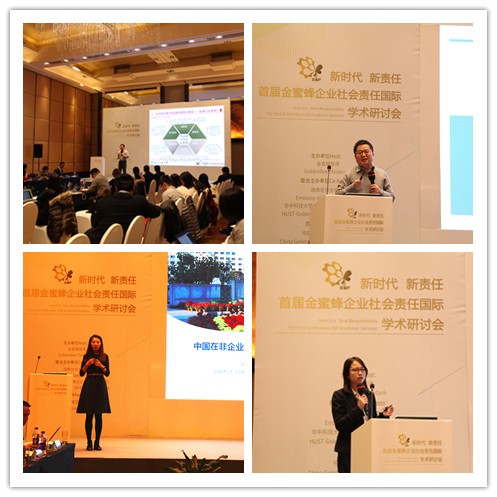
Panel 3: Sharing of views among young researchers
The panel of “Sharing of views among young researchers” was chaired by Professor Guo Yi from the School of Economics, BTBU. He pointed out that in the new era, CSR faces two major challenges posed by new technologies and emerging markets. The invited four young scholars, from the perspectives of technology and the research on overseas investment markets, introduced new problems, new challenges and new countermeasures in the field of CSR.
Through case sharing, Dr. Dou Yijie, Teacher of Centre for Industrial and Business Organization, Dongbei University of Finance and Economics, proposed four points for the improvement to the CSR governance mechanism of the global supply chain.
Lv Peng, Associate Research Fellow of Institute of Sociology, Chinese Academy of Social Science, shared the impact of AI on social value creation and CSR. He believed that “technology asset”, the core asset of technology enterprises, is the advantage of them in promoting social development.
Zhang Shuo, Ph.D of Cornell University and Lecturer of School of International Trade and Economics, Central University of Finance and Economics, talked about the current status, problems and opportunities of social responsibility practices of Chinese-funded enterprises in Africa.
Cai Feifei, Ph.D Candidate of University of New South Wales and Consultant of Social Resources Institute, taking Myanmar as an example, shared the research on community relationship management of Chinese enterprises while making overseas investments.
As Professor Lei Hong said at the conclusion of the Seminar: CSR is a symbol of the maturity of economic and social development, and also a sign of the maturity of an enterprise. The better development of CSR requires us to constantly seek for more feasible and more efficient measures.
During the Seminar, the participants actively discussed various issues, and some topics stroke a chord with them. It is believed that the First GoldenBee CSR Academic Seminar will help the industrial, academia and research institution achieve better and faster integration and development.